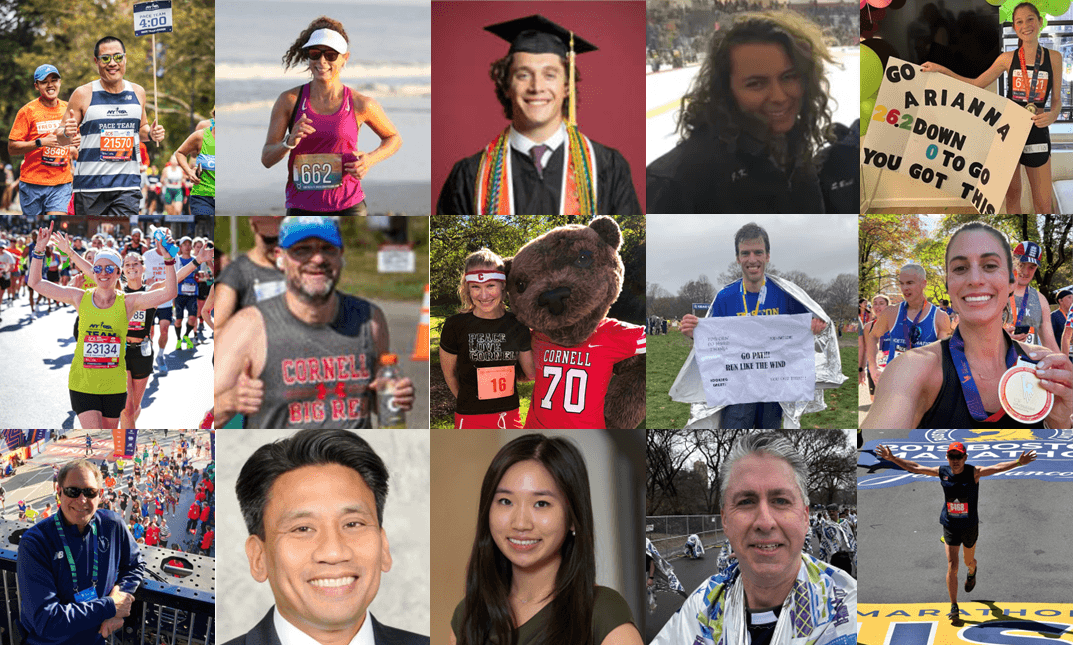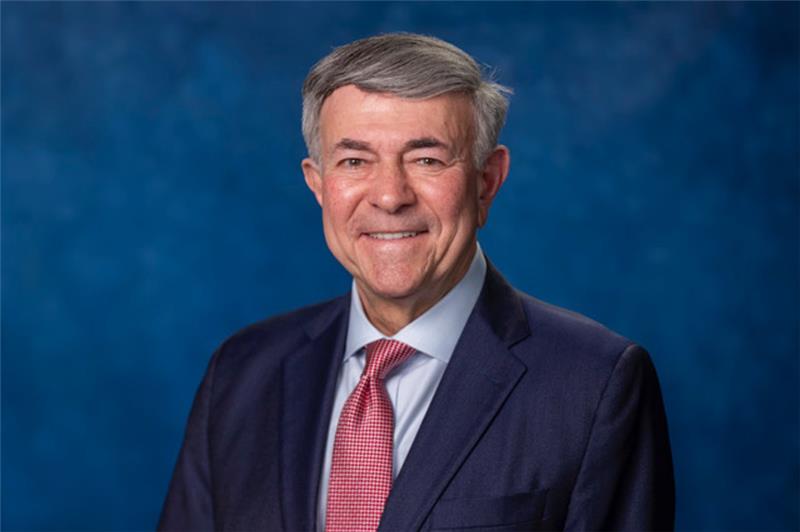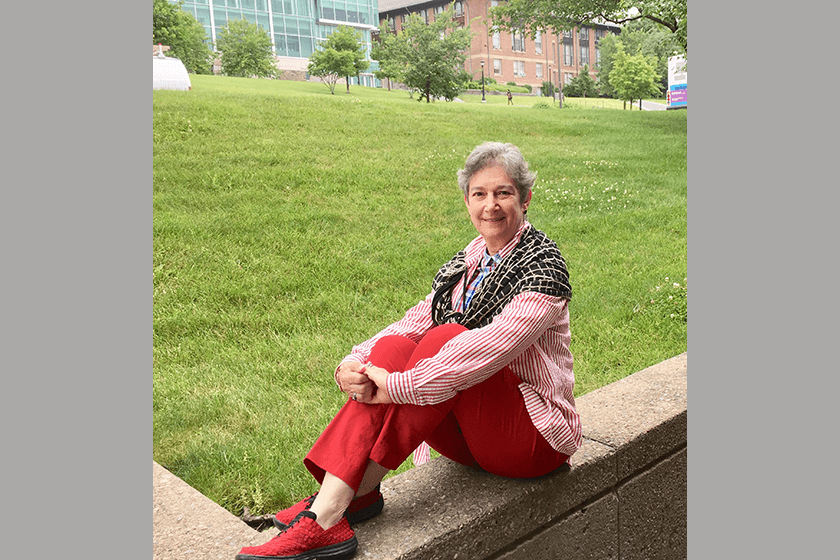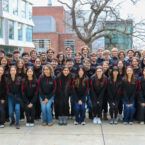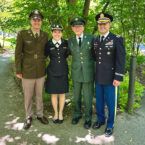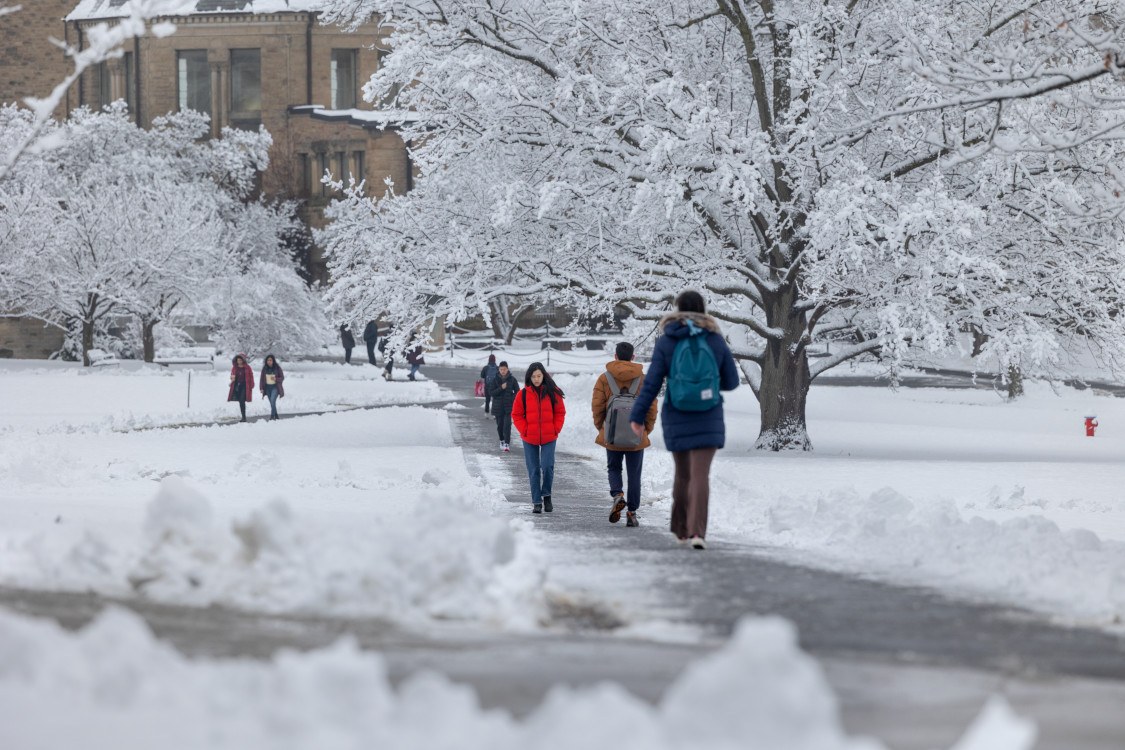Natalya G. Johnson ’07, JD ’10 serves as senior counsel for Johnson & Johnson. She is a legal advisor focused on employment law and manages employment-related litigations. Prior to joining Johnson & Johnson, she represented private and public sector clients in federal and state litigation and trial matters. As a commercial litigator, she handled a wide variety of complex cases, including business disputes, insurance, real estate, education, and health law.
Driven by her commitment to diversity and inclusion, Natalya seeks ways to impact her community. She currently serves as president of the Garden State Bar Association (GSBA). Supporting the advancement of the next generation of lawyers and industry leaders is extremely important to Natalya. She sits on the Diversity, Equity, and Inclusion (DEI) Alumni Leadership Council of Cornell Law School and previously served on the Executive Board of Directors of its Alumni Association. She is also a member of the President’s Council of Cornell Women and a past president of the Cornell Black Lawyers Alumni Network.
Natalya has been widely recognized for her professional and community achievements. In 2019, she was named one of the 40 under 40 Nation’s Best Advocates by the National Bar Association. She was named a 2020 New Jersey Law Journal New Leader of the Bar, and a 2020 Professional Lawyer of the Year honoree by the New Jersey Commission on Professionalism in the Law. Recently, she was named a ROI-NJ 2022 Influencer, a Black in-house Counsel’s 2022 Black Diamond award honoree, was recognized by the Executive Women of New Jersey as a 2022 Salute to Policy Makers honoree, and by the African American Chamber of Commerce with the Community Service at its 13th Annual Circle of Achievement Awards.
What drew you to the legal profession?
I knew early on in my life that I wanted to pursue a career in law. In fact, I chose to pursue government studies at Cornell University, largely because I thought it would provide a great foundation for a law degree. As an undergraduate student, I had the opportunity to take a law course called, The Nature, Function, and Limits of Law. It was a great experience and solidified my interest in continuing down the path of becoming a lawyer. I was also drawn to the legal field because of the tangible impact lawyers can have on people’s lives.
I feel incredibly privileged to have started my career at the legal services organization Volunteer Lawyers for Justice (VLJ) providing and coordinating pro bono legal services. VLJ’s mission is to ensure access to justice for people experiencing poverty. It was at VLJ in its Reentry Legal Services (ReLeSe) unit where I experienced firsthand how my expertise as an attorney could help alleviate economic pressures and impact people’s lives. We helped indigent clients, some of them homeless, tackle issues like child support, driver’s license restoration, and expungement of criminal records, which typically led to significant community reintegration.
My focus on helping my community is also deeply embedded in my work. Today, the opportunity to work in healthcare is a continuation of my desire to use my legal degree to positively shape my community. Personally, I support the work of innovators serving and caring for patients—from life-saving stroke treatments to cardiac procedures, to restored vision with advanced surgical treatments, and more.
What most excites you about your work?
As a corporate lawyer, I act as a trusted business advisor, innovator, and problem solver for my clients. We are often told that law school provides students with a framework to approach problems critically and to think analytically. I’ve found that my law school, law firm, and in-house training have not only equipped me with a creative mindset but also uniquely positioned me to contribute productively both at work and in extracurricular environments. Whether it’s a work issue, board service, or community project, I appreciate the training I have as a lawyer to be detailed-oriented, strategic, and focused on finding solutions and accomplishing goals.
As president of the GSBA, I have the privilege of driving causes to continuously assist African Americans and other ethnic minorities in becoming an effective part of the judicial and legal systems. The GSBA also seeks to advance the science of jurisprudence, improve the administration of justice, support initiatives aimed at dismantling discrimination and designed to improve the economic condition of all individuals, and eliminate discrimination and inequality based on race, ethnicity, or sex. This work is not only exciting, but it is rewarding and necessary. From educational panels and programs to collaborations with civic organizations and community groups to community service and advocacy, the work of the Bar provides a platform for lawyers in both public and private sector roles to work to improve the legal profession and also to build and sustain our broader communities.
In your career, how have you found mentors and made connections along the way?
I am passionate about mentorship and sponsorship. Throughout my career, I have benefitted from mentors both inside the organizations I work in and outside. These mentors have provided insight, guidance, helpful advice, encouragement, and inspiration. Because I have been the beneficiary of mentorship and people who have taken an interest in my personal and professional development, I am also enthusiastic about looking back and building up and supporting those who come after me. This is also the reason why I’ve devoted much of my career to fundraising for scholarships and providing resources to those looking to pursue the law as a career.
One of the highlights of my Bar Association work includes raising over a quarter million dollars to support the initiatives of the Bar Association, including establishing an endowed scholarship fund for law students with ties to New Jersey. I get so much joy hearing from and seeing the success of law students and scholarship recipients who become mentees and go on to lead productive and successful legal careers.
In 2017, I co-founded a group called the Advancement Initiative (AI), a grassroots professional women’s network with fellow Cornellian, Alana St. Aude. AI’s objective is to harness the strength of personal and professional networks to foster mentorship and opportunities in law and business.
Do you have any advice for Cornellians starting out in the legal field?
My advice to Cornellians starting out in the legal field is that regardless of practice area, relationships matter and can have a transformative impact on your career trajectory as well as make your time practicing law more enjoyable. In addition to working to master your subject matter area, it’s also important to sometimes leave your desk, attend legal (and non-legal) events, network across industries and sectors and take the time to connect with and build authentic relationships with other professionals. I also encourage Cornellians to stay curious and flexible throughout their professional journeys. If you take the time to speak to lawyers across industries, you’ll find that one common theme is that the practice of law is rarely linear but often takes a jagged path.
What role has the Cornell network played in your career?
Many of my former classmates are valued allies today and not only are they supportive day-to-day, but they offer guidance and provide a continued sense of community. Just pick up a phone and call, and Cornellians will welcome you with open arms. I’ve experienced this time and time again. The bonds Cornellians share also transcend class year and generations. I feel so fortunate to be a part of the Cornell alumni community because Cornell does an excellent job both at the undergraduate and graduate school levels, of providing space for alumni to connect, give back, create, and expand community and networks.
In 2014, I joined a completely new organization, CBLAN, founded by trailblazing Black law school alumni Laura Wilkinson and Eric Elmore. With the support of the alumni community and the resources of the school, the network has grown in numbers and reach and was the first affinity-based graduate alumni group of its kind to establish an endowed scholarship program called the George Washington Fields LLB 1890 Scholarship Fund, named after Fields, who was born a slave in 1854. Fields entered the first law class of Cornell University and earned his LLB degree in 1890. Through the scholarship program work of CBLAN, we honor the legacy of courageous graduates like Fields while also supporting the present-day needs of the law school and our boarder alumni community.

